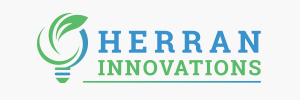Top EU officials sent out largely positive signals regarding the country’s prospects of joining the bloc at the 9 September Serbia-EU Forum in Belgrade, raising hopes for a positive review when the European Commission issues an opinion next month. EurActiv Serbia reports.
Speaking at the event, both Serbian President Boris Tadic and Prime Minister Mirko Cvetkovic reiterated their commitment to Serbia’s European path, regardless of the difficulties.
European Council President Herman Van Rompuy called on the country’s leaders to remain devoted to European goals and added that the EU was ready to admit Serbia as a member as soon as it had met the necessary conditions.
“You have done a great deal, but there is inevitably more to do. We are ready to help you. The Union will be ready whenever Serbia is,” Van Rompuy said.
The biggest sceptic was Foreign Minister Vuk Jeremic, who voiced reservations regarding the possibility of Serbia gaining EU candidate status this year.
The event, which gathered over 400 representatives – from governments, business, media and NGOs – provided an opportunity to discuss the concrete changes Serbia needs to make to boost its EU accession hopes. Areas covered included social policy, the fight against corruption and organised crime, and the single biggest issue – Kosovo.
Kosovo remains the biggest obstacle
Van Rompuy reminded that relations between Belgrade and Pristina would be central to the EU’s decision to accept Serbia as a member and hailed the fruits of the existing dialogue, which aims to prevent unilateral moves by either side.
The leader of the Socialists and Democrats (S&D) group in the European Parliament, Martin Schulz MEP, also sent a positive message. In an interview with Deutsche Welle before the conference, the German MEP downplayed the hardline stance on Kosovo presented by Chancellor Angela Merkel during her recent visit to Belgrade, saying that it was more her own opinion than that of the EU and Germany.
“The progress that has been made over the last few months, in my opinion and the opinion of many in European institutions, leads to the conclusion that the Serbs are headed in the right direction and should continue that way. Certainly not all problems have been solved, but my opinion is that one can be more constructive than Chancellor Merkel was,” Schulz added.
Addressing the conference, Schulz said the S&D group was hoping and expecting that the European Commission would recommend candidate status for Serbia in October.
On the Serbian side, President Tadic told the attendees that Serbia would not cease its efforts to reach a fair and lasting solution to the Kosovo problem, but added that it was completely unrealistic to expect Belgrade to accept the annulment of institutions in the northern part of the province, which is largely inhabited by ethnic Serbs. He also condemned the use of force and unilateral solutions.
Tadic went on to outline parts of a solution which would include guarantees of the safety of ethnic Serbs and their property in the Kosovo, as well as of cultural and historical monuments. He said Serbia was aware that the Kosovo problem had to be solved before it joined the EU, but underscored that the issue required a just solution that would satisfy everyone.
Drug trafficking
The problem of drug trafficking through the Western Balkans to the EU stood out during the panel discussions. Serbian Interior Minister Ivica Dacic said that three quarters of the total quantity of heroin arrived in Western Europe via the Balkans and that the region was increasingly being used for smuggling cocaine from South America.
The minister stated that two thirds of the criminal groups smuggling heroin were from Albania and that Serbian citizens had been discovered as members of the most organised cocaine cartels. He claimed that thanks to information provided by the interior and intelligence agencies over 20 tonnes of drugs had been seized over the past four years.
Europol Deputy Director Michel Quille pointed out that the reduction of trafficking and the fight against criminal groups from Albanian-speaking areas were among the priorities of the EU clampdown on crime. He highlighted that this meant greater exchanges of information with Western Balkan countries and urged them to send their liaison officers to Europol’s headquarters in The Hague.
Corruption
Corruption is another burning issue that the countries of the region must tackle prior to joining the EU. This is especially true since the accessions of Romania and Bulgaria to the bloc, which some consider to have occurred too soon.
Speaking at the panel discussion, Dacic said 2,479 crimes had been unveiled in the fight against corruption since the beginning of the year, while last year 3,814 people were reported on corruption grounds. He added that over 100 members of the police had also been arrested for corruption.
Vladimir Goati, the head of Transparency International’s Serbian chapter, was sceptical, asking “How come such fantastic efforts, laws and strategies yield such meagre results?” He argued that corruption in the country had grown “to an enormous, unbelievable extent,” despite the authorities’ claims that they were doing everything to suppress it.
In explaining this, Goati cited the lack of transparency and control in the financing of political parties. He warned that Serbia “is being monitored by the EU” more than any neighbouring country and stressed that the fight against corruption would be Serbia’s “rockiest road” to membership of the bloc.
Source euractiv.com













